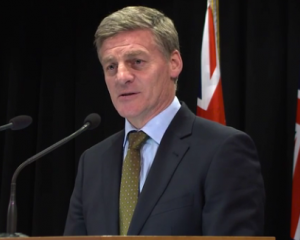The Government is coming under further pressure to step in to help reduce the value of the New Zealand dollar but Economic Development Minister Steven Joyce has called the Green Party theory a "snake-oil solution".
"The Greens' grab-bag of theories to lower the New Zealand dollar shows exactly how little they understand the economy and growth," Mr Joyce said.
Green Party co-leader Russel Norman yesterday called for a broader mandate for the Reserve Bank to enable a lower official cash rate and new tools for managing asset bubbles.
The Greens also wanted a capital gains tax - excluding the family home - and quantitative easing in the form of the Reserve Bank buying Government earthquake recovery bonds to pay for the Government's costs in the rebuilding of Christchurch and, separately, refilling the Natural Disaster Fund.
"We're proposing a suite of measures which, in combination, will work to lower our high exchange rate and help restore our productive sector."
Opposition political parties are united on a call for measures to be introduced to reduce the value of the kiwi.
Last week in Dunedin, both Labour Party finance spokesman David Parker and economic development spokesman David Cunliffe called for changes to the Reserve Bank Act to allow the new governor Graeme Wheeler wider discretionary powers to help reduce the value of the currency.
New Zealand First leader Winston Peters has a Bill due to be debated in Parliament on October 17 which proposes amending the Reserve Bank Act to allow the central bank to take in a wider view of the economy when setting the OCR.
Pressure is building on the Government to start listening but Mr Joyce remains unmoved.
New Zealand had one of the strongest economies in the OECD over the last 12 months.
"Yet the Greens were determined to talk us down and promote a bunch of ideas that are only in vogue in countries that have run out of options and have massive and crippling public debt."
The Greens' solution to encourage the private sector was to slap a capital gains tax on it, he said. Leaving aside the fact that Australia had a capital gains tax and a high dollar, it was a strange way to seek and encourage investment and growth.
"They then want to abandon sensible monetary policy and whack up the cost of living for every New Zealander - and they want to pay for the Christchurch rebuild by printing money," Mr Joyce said.
Figures out on Friday from the New Zealand Manufacturers and Exporters Association suggested growth for the manufacturing sector had stalled.
First Union general secretary Robert Reid said the Government needed to front up on the debate about the dollar.
"There will be plenty of views on how to deal with the higher dollar, but shirking away from a meaningful debate on alternative monetary policy settings that support jobs in manufacturing is not good enough."
Manufacturing was New Zealand's third-largest employing industry but workers in the sector had been paying the price for Government inaction through job losses, he said.
The Government should consider other ways, in addition to monetary policy changes, of helping industry and its workforce. These included better use of government procurement and former initiatives such as temporary job support schemes being brought back for sectors facing significant redundancies, Mr Reid said.
However, Mr Joyce said the way to achieve faster growth and more higher-paying jobs was to have responsible fiscal and monetary policy.
Then New Zealand firms could be assisted to become more competitive in the areas of skills, innovation, infrastructure, access to raw materials, capital and markets, he said.










